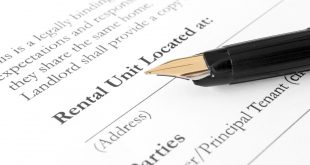Whether new or resale, condominiums are a special type of property investment. As a condo investor, your considerations for buying or not buying will likely be different from those of commercial or multi-unit residential property investors.
So, to help you figure out the financial details of your purchase, here are five factors to consider when deciding whether a potential condo property investment makes sound financial “cents”.
It never gets old – Location is still King!
The old adage “location, location, location” may be old but it’s stood the test of time for a reason. The truth is that the location of your condo, coupled with the neighbourhood(s) and amenities surrounding it, can make the difference between a superior condo buying decision and a second-rate one.
The surrounding condo neighbourhood often determines whether your condo investment feels more like a community than anything else. As a condo investor, it’s important to seek out neighbourhoods that have existing infrastructure to support tenants and their day-to-day needs. Aspects like easy access to transit and good walk scores can dramatically affect the appeal of a certain neighbourhood. See more about walk scores here. In researching neighbourhoods, good resources to check out are local BIA groups as well as neighbourhood blogs and Facebook pages.
Get the Best Price
This is obvious, I know, but you might be amazed to learn that even seasoned property investors can fall into the trap of overpaying on an unexpectedly emotional property purchase. Get the lowest and best price possible for your unit purchase by having all the facts about pricing for comparable properties in your target area.
Condonow has a very robust comparison function, check it out, that allows you to stack developments side by side to get a clear understanding of factors such as price per square foot, amenities, maintenance fees and deposit structure.
Know Your Numbers
In addition to getting the best purchase price, you also need to get and know your financial numbers. Price, potential resale value, potential rental income, condominium association or maintenance fees, property taxes, parking, current utilities (if available) and any other associated fees are crucial numbers for you to know about your condo investment.
You should also know exactly what your condo fees cover. For example, do the condo fees include all amenities or are some pay-per-use? Do the condominium maintenance fees include all or part of property taxes? All or part of the utilities? All of the above information is available through the development office of a new condo build or through a local real estate agent.
Crunch Your Numbers – Know the ROI
No matter if you’re buying a new or resale condominium in Toronto, run all of the numbers on your potential purchase (see above) to see if it makes financial sense. Also, be realistic about your condo unit’s potential for rental occupancy. When you crunch the numbers, you’ll be able to determine convincingly whether the condo property makes financial sense for your business or real estate portfolio. An ROI tool such as the one found here is a great place to get a handle on this type of detailed information.
Consider Condo Developer Expertise
Lastly, a heated real estate market often unfortunately has the side effect of encouraging condo developers of all shapes and sizes to throw their hats into the condo construction ring. Yet, developer expertise and experience often speak for themselves.
A new or less experienced condo developer may conceive of a condo building that suffers from poor design/layout, that doesn’t have the amenities or quality finishes expected by its target buyers, that runs low on (or out of) funds, or that is simply a major mess from top to bottom. Do your background research on condo developers you’re considering buying from to ensure they have the know-how and street cred to finish the job properly and deliver on your expectations.
 StoryLine By CondoNow
StoryLine By CondoNow



